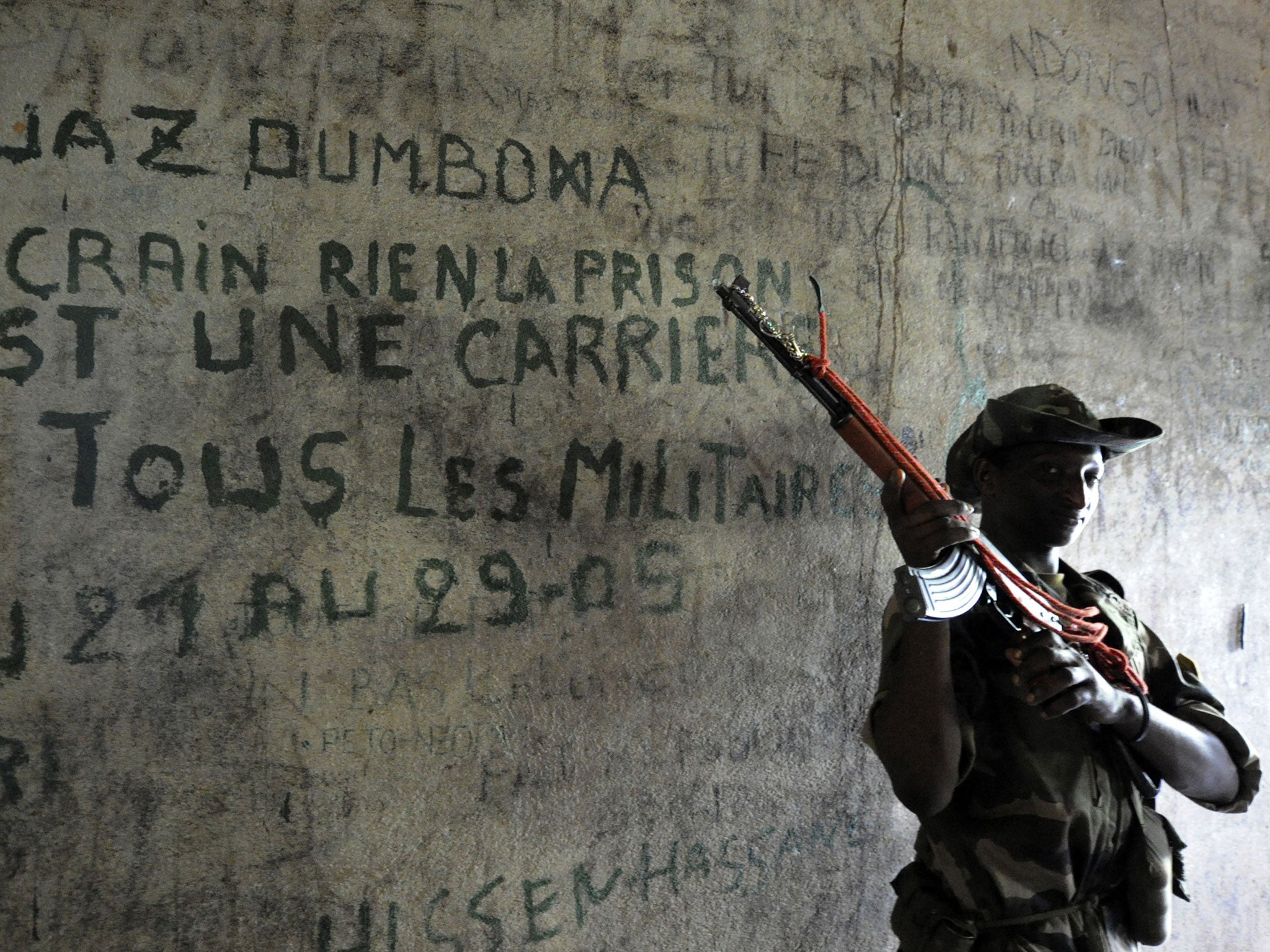South African counter-attack against Central African Republic rebels would be ‘complete madness’
Opposition is rising against South African intervention as more deaths are feared

South Africa has been warned against a fresh intervention in the chaotic Central African Republic after sending troops to neighbouring Uganda. Two hundred soldiers were reported to be preparing to “hit back” at rebels in CAR who overran the capital on Sunday, forcing the president to flee and killing at least 13 South African soldiers.
David Maynier, the defence spokesman for South Africa’s opposition Democratic Alliance, said it would be “complete madness” to launch a counter-attack against rebels who are in de facto control of the mineral-rich CAR. “More soldiers would be put at risk and there’d be more body bags which the public doesn’t want,” said Mr Maynier.
South Africa’s defence ministry has refused to comment on a deployment of troops at Entebbe air base in Uganda. It is unclear whether the 200-strong force includes soldiers evacuated from CAR after Sunday’s fighting.
The decision to prop up the controversial regime of Francois Bozize at the cost of South African lives has sparked widespread condemnation of President Jacob Zuma. Commercial links between members of the ousted CAR president’s regime and South Africa’s ruling ANC have been established and the opposition has demanded a parliamentary inquiry. Some commentators have even called for Mr Zuma to be impeached.
The former French colony – which has remained among Africa’s poorest countries despite its wealth of diamonds – has endured continual coups and a bloody era ruled over by a self-declared emperor. The regime of President Bozize, who is now staying in Cameroon, took power through a military coup in 2003 and has been accused rigging subsequent elections.
While other countries were reluctant to intervene in CAR to protect Mr Bozize, notably France which refused requests for military help, South Africa responded to rebel advances in January by sending troops. A group of fewer than 30 military trainers from the South African National Defence Force (SANDF) was beefed up to 200 and barracked next to the presidential palace in Bangui.
The Seleka rebels led by a former ally of Mr Bozize, Michel Djotodia, struck a peace deal that made him the new minister of defence but the terms of that agreement were not honoured. The deal has unravelled in recent weeks and while other foreign troops – including French troops who control the airport – were not targeted by rebels, South African soldiers were attacked at their base.
The SANDF troops have been branded as “mercenaries” by many in CAR, where they are widely believed to be protecting business interests shared between the elites in Bangui and Pretoria.
Mr Zuma’s defence minister, Nosiviwe Mapisa-Nqakula, said the 13 soldiers that died had “fought protecting South African interests and were not protecting any business”.
However, questions have been asked about the role of controverisal businessman Didier Pereira. Mr Pereira, who acts as a “special advisor” to ousted President Bozize, has a partnership with ANC security supremo and fundraiser, Paul Langa, and former spy chief Billy Masetlha. Last October Mr Pereira organised meetings between Mr Zuma and Mr Bozize’s son Francis, formerly the defence minister of CAR, to discuss a weapons deal.
Subscribe to Independent Premium to bookmark this article
Want to bookmark your favourite articles and stories to read or reference later? Start your Independent Premium subscription today.

Join our commenting forum
Join thought-provoking conversations, follow other Independent readers and see their replies